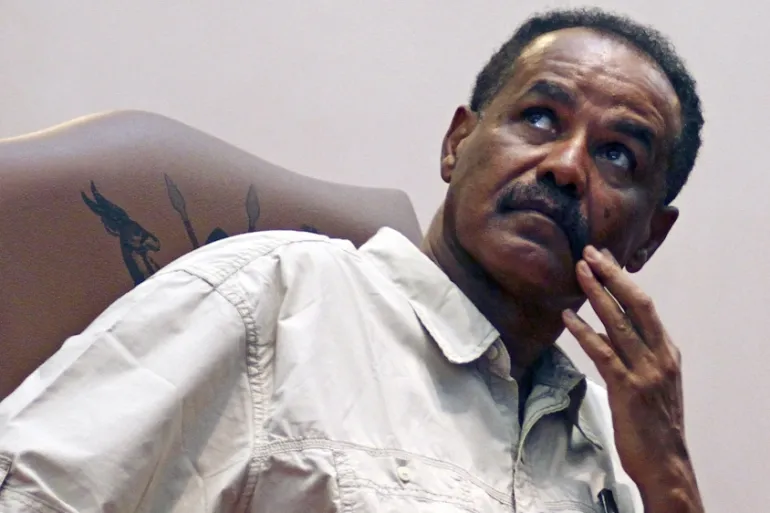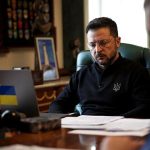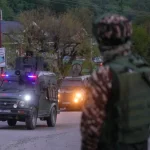American writer and security analyst Paul B Henze, who served in the Carter administration as a deputy to National Security Adviser Zbigniew Brzezinski, once made a very astute observation about Eritrea’s current president, Isaias Afwerki.
In his 2007 book, Ethiopia in Mengistu’s Final Years: Until the Last Bullet, he noted “Isaias impressed me as remarkably similar in temperament and attitudes to Mengistu [Haile Mariam, Eritrea’s former dictator who has overseen the killings of tens of thousands of opposition figures and civilians]. He has many of the same mannerisms, a rather bulldoggish seriousness, a defensiveness behind a facade of feigned reasonableness that is not really convincing. One senses a stubborn, fundamentally authoritarian personality.”
The similarities Henze saw between Mengistu and Isaias have proven correct and highly consequential over the last three decades.
After declaring victory against the Mengsitu regime in 1991, Isaias was able to oversee the emergence of an independent, sovereign Eritrea. For a brief moment, Eritreans were full of hope. They assumed independence would bring more freedom and better economic prospects. There was talk of turning Eritrea into Africa’s Singapore.
However, the euphoria of independence was short-lived. The dream of transforming Eritrea into a prosperous liberal democracy did not appeal to Isaias. He wanted his country to resemble not Singapore, but Sparta. He rejected the democratic constitution drafted by the pre-eminent Eritrean jurist Bereket Habte Selassie and ruled Eritrea with an iron fist.
In no time, he turned Eritrea into a garrison state. He transformed Eritrean institutions and society at large into tools to fulfil his geo-political fantasies. Eritreans became unwilling pawns in the president’s many military schemes, with no space left for their personal dreams and aspirations.
Isaias ruthlessly dealt with even his closest colleagues and allies who dared to suggest that Eritreans enjoy some basic liberties that people elsewhere in the world often take for granted.
In May 2001, 15 senior Eritrean officials, many of whom had been on the president’s side throughout the independence war, issued an open letter urging him to reconsider his autocratic mode of governance and hold free and fair elections. At the time, three of the 15 officials were living abroad, and one eventually changed his position and rejoined the Isaias government. The remaining 11, however, were swiftly arrested on unspecified charges. More than 20 years later, the fates of these 11 men are still unknown. No one knows for sure if they are alive or dead. No legal or religious counsel or family member has been granted access to them. There have been no charges, no trials, no conviction and no sentence.
Though these senior officials are among the most prominent in Eritrea to be meted such treatment, their fate is hardly unique. Anyone in Eritrea who dares to question the great wisdom of the infallible President Isaias meets the same fate.
In the nightmarish gulag state that President Isaias created, no one is free to study, work, worship, run a business or engage in any other normal activities. There is a mandatory and indefinite military service which keeps every Eritrean citizen in servitude to the supreme leader for their entire lives.Sign up for Al Jazeera
While everyone in Eritrea suffers from Isaias’s institutionalised tyranny, religious and ethnic minorities suffer the most. Religious persecution in the country is so extreme that in 2004 the US Department of State designated Eritrea as a “country of particular concern” under the International Religious Freedom Act of 1998. There is also significant ethnic persecution in Isaias’s Eritrea. In a May 2023 report, for example, UN Special Rapporteur on the situation of human rights in Eritrea, Mohamed Abdelsalam Babiker, underlined the harsh conditions faced by the Afar community who inhabit the Dankalia area of the country. Babiker wrote: “The Afar are one of the most disenfranchised communities in Eritrea. For several decades, they have been subjected to discrimination, harassment, arbitrary arrests, disappearance, violence, and widespread persecution.”
In the end, Paul Henze’s insight about the fundamentally autocratic personality of Isaias proved not only right, but also an understatement. The oppression and violence of Isaias’s rule in the past three decades matched and at times surpassed that of Mengitsu.
Regrettably, the world rarely acknowledges the plight of Eritreans, who are forced to live their lives as unwilling servants and soldiers of their authoritarian president. The toll of Isais’s endless war schemes on Eritreans is still rarely mentioned in discussions about the region.
Eritrea under Isaias is a country always on a war footing. Right now, it is not only agitating against Ethiopia, but also actively involved in the civil war in Sudan. In fact, one would be hard-pressed to find a period in Eritrea’s post-independence history that it was not at war with one of its neighbours, or involved in some regional conflict or civil war. War is the modus vivendi of President Isaias.
The world is now paying some attention to Eritrea, because of the looming risk of conflict with Ethiopia. But even if conflict between the two neighbours is somehow prevented, the misery of Eritreans stuck in Isaias’s garrison state will continue. Forgotten and left to their own devices, Eritreans will continue to suffer in a brutal dictatorship where the individual is seen just as fodder for the mighty Eritrean Defence Forces. This must not be allowed to continue. The world must not avert its gaze and forget about the plight of Eritreans once their country is no longer mentioned in the news. The world needs to act before more Eritreans lose their lives and dreams fighting in Isaias’s forever wars.






